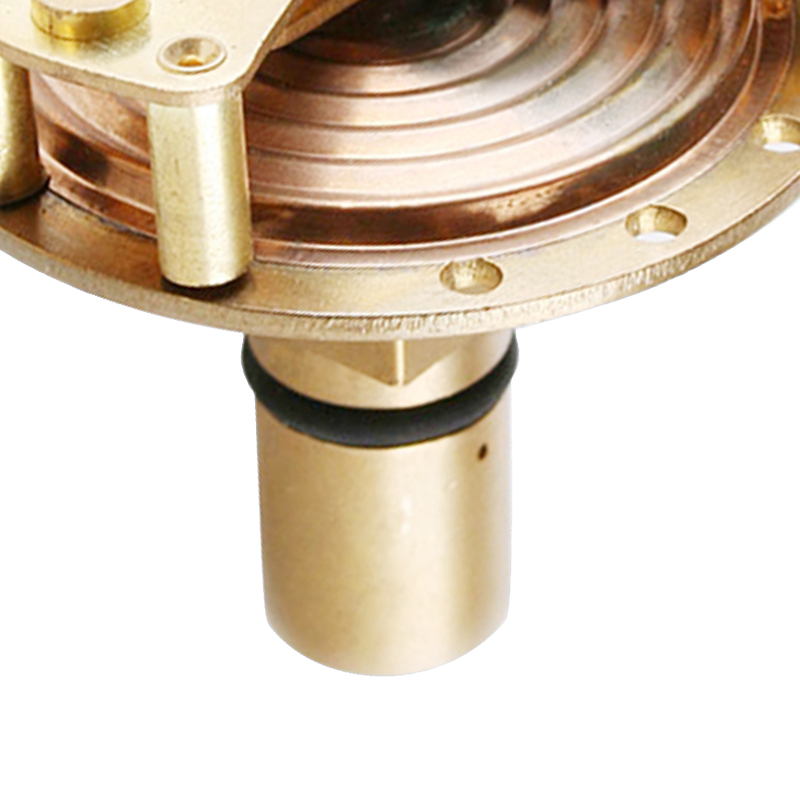
Nov . 08, 2024 02:49 Back to list
Exporters of Differential Pressure Gauges for Various Applications and Industries
The Importance of Differential Pressure Gauges in Various Industries
Differential pressure gauges have become essential instruments across a variety of industries, from oil and gas, chemical processing, pharmaceuticals, to water treatment facilities. These devices measure the difference in pressure between two points in a system, providing critical data that ensures operational efficiency and safety. With the growing demand for reliable and accurate measurements, the role of differential pressure gauge companies and exporters has become increasingly significant.
Understanding Differential Pressure Gauges
Differential pressure gauges operate by measuring the pressure difference between two reference points. They are commonly used to monitor filter conditions, verify fluid flow rates, and assess the pressure drop across various components in a system, such as pumps, valves, and heat exchangers. By providing real-time data, these gauges help operators detect anomalies, track performance, and implement preventative maintenance strategies.
Applications Across Industries
1. Oil and Gas Industry In the oil and gas sector, differential pressure gauges are vital for monitoring the pressure in pipelines and processing plants. They ensure that operations remain within safe parameters, helping to prevent leaks and potential hazards. For example, they can be used in separators to ensure that the pressure differential between gas and liquid phases is maintained, ensuring optimal performance.
2. Chemical Processing In chemical plants, accuracy in pressure measurements is critical for safety and efficiency. Differential pressure gauges are essential for monitoring reactors and distillation columns. They can indicate the need for maintenance by showing pressure drops that may suggest blockages or equipment failures without the need to shut down processes entirely.
3. Pharmaceuticals The pharmaceutical industry requires exceedingly precise measurements for compliance with stringent regulatory standards. Differential pressure gauges help maintain appropriate operating conditions in clean rooms and sterile environments, ensuring that products are manufactured under safe and controlled conditions.
4. Water Treatment Facilities Water treatment plants utilize differential pressure gauges to monitor filters and membranes. These measurements help operators understand when maintenance is required and ensure the integrity of the water supply. A pressure drop across a filter can signal clogging, prompting timely interventions that keep the system running smoothly.
differential pressure gauge company exporters

The Role of Differential Pressure Gauge Exporters
As demand for these vital instruments rises globally, differential pressure gauge companies and exporters play a crucial role by providing high-quality products tailored to specific industry needs. These companies often invest in advanced technology and manufacturing processes to ensure reliability and accuracy in their gauges. Additionally, they offer a variety of models that cater to different pressure ranges, materials, and environmental conditions.
Exporters also play a significant role in facilitating international trade, allowing industries around the world to benefit from advanced measurement technologies. By connecting manufacturers in one region with clients in another, these exporters help spread best practices and foster growth in emerging markets. Their expertise in logistics and compliance with international standards ensures that quality products reach their destinations efficiently and safely.
Innovation and Future Trends
Innovation in the field of differential pressure measurement is driven by the need for greater accuracy, reliability, and ease of use. Digital differential pressure gauges equipped with smart sensors and IoT connectivity are becoming increasingly popular. These modern devices can provide remote monitoring capabilities, allowing for real-time data access and analytics, which enhances decision-making processes.
Moreover, as industries continue to prioritize sustainability, differential pressure gauges are being designed to minimize waste and improve energy efficiency. Smart technology integration not only enhances operational efficiency but also supports organizations in meeting their sustainability goals.
Conclusion
In conclusion, differential pressure gauges are indispensable tools that support various industrial processes by ensuring safe and efficient operation. The role of differential pressure gauge companies and exporters is critical in providing these essential instruments, enabling industries to make informed decisions and maintain compliance with safety standards. As technology continues to advance, the future of differential pressure measurement looks promising, paving the way for even greater innovations in the field. The collaboration between manufacturers and exporters will remain vital in meeting the growing global demands for these crucial devices.
-
High-Quality Pressure Gauge on Fire Extinguisher - Reliable Water Fire Extinguisher Pressure Gauge Suppliers & Exporters
NewsJul.08,2025
-
High-Quality Water Pressure Differential and Gauge Kit Reliable Manufacturers & Competitive Quotes
NewsJul.08,2025
-
High-Precision Digital Diaphragm Pressure Gauge – Reliable Manufacturer & Competitive Quotes
NewsJul.07,2025
-
Wholesale Diaphragm Pressure Gauge Supplier - Premium Quality & Competitive Price
NewsJul.07,2025
-
Digital Diaphragm Pressure Gauge Reliable & Precise Measurement Top Manufacturers Quotes
NewsJul.06,2025
-
High Accuracy Piston Type Differential Pressure Gauge - Reliable Manufacturers & Competitive Quotes
NewsJul.06,2025
